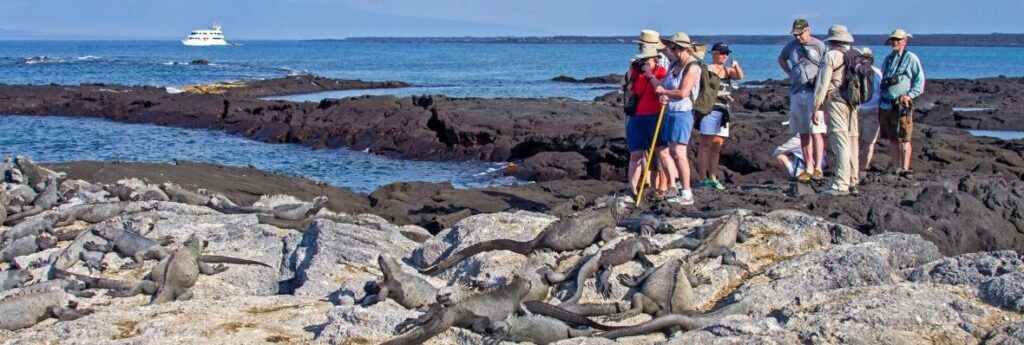On Aug. 1, tourists to the Galapagos Islands will be asked to pay twice as much in entry fees ($200) amid concerns that a rise in visitor numbers is putting pressure on the ecologically sensitive destination. But more than a cash grab, the move is an important reaction to a “deepening issue,” according to Intrepid Travel.
“Fees support conservation efforts,” says travel company Ecuador General Manager, Fausto Sarango. “These fees are an immediately necessary first step – but exactly that, just one step in a global conversation around increased regulation.”
Intrepid runs five trips to the Ecuadorian islands, but Sarango says the company has “gone to great lengths to do our due diligence on even offering these trips. The Galapagos Islands are not only a national treasure, but a global one. There must be greater strategic buy-in from all tour operators on the volume of tourists to fragile areas and the locations we visit… We’re calling on both travellers and travel companies to rethink their role in how we experience this planet before it’s too late.”
Sarango says Intrepid’s ultimate goal is to become world’s first carbon negative travel company.
It is also at the forefront of learning and sharing regenerative tourism techniques around the globe to ensure businesses, and the communities they highlight, can last into the future.
Galapagos
The Galapagos are a UNESCO World Heritage site comprised of more than 100 islands. The islands are nicknamed a “living museum” and are home to many rare or endangered plants and animals.
The Galapagos Conservation Trust, a UK-registered charity focused on promoting conservation and sustainability on the islands, has warned of ecological consequences from rising visitor numbers.
“Recent years have seen worrying growth in the number of visitors to the Islands, driven by a sharp increase in land-based tourism,” it said on its website. “This is pushing waste management systems to the limit, exacerbating water and food insecurity, and increasing the threat of devastating invasive species being introduced to the Islands.”
Only some 30,000 people live on one of the Galapagos islands, but about 170,000 tourists visit in a typical year. Over the past decade, the number of tourists has almost doubled.
Scientific discoveries continue to be made in the archipelago. A previously unknown coral reef, believed to be thousands of years old, was discovered by scientists last year.
The islands are the latest to join a string of destinations from Bali to Venice requiring extra charges to combat overtourism.
Hawaii might be the next island chain to follow suit with recent strong calls for a $50 so-called Green Fee visitor payment to be added in support of the ecologically fragile area.

